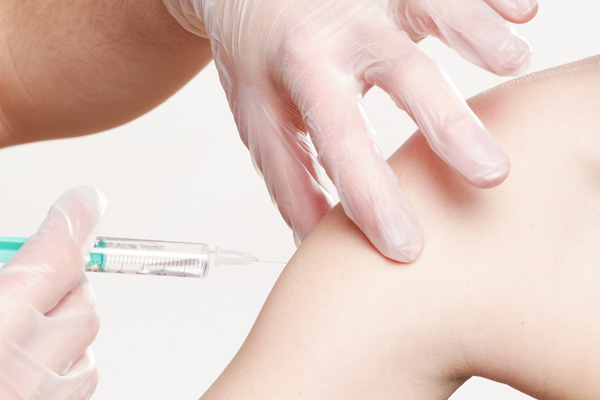Trump appoints vaccine skeptic RFK, Jr. to lead HHS

[Vaccination. Photo credit: Pixabay]
President-elect Donald Trump has announced his intention to appoint Robert F. Kennedy Jr., a prominent vaccine skeptic, as the head of the U.S. Department of Health and Human Services (HHS).
The role includes extensive responsibilities within the U.S. health sector, covering areas such as food safety, pharmaceuticals, public health, and vaccinations.
If his appointment is approved by the U.S. Senate, he would oversee major health agencies employing approximately 80,000 individuals and managing a budget of approximately one trillion dollars.
Robert F. Kennedy Jr. has consistently promoted claims about vaccines and health that directly contradict the scientific consensus, prompting sharp criticism from public health experts.
His controversial stance includes spreading discredited claims, such as falsely asserting that vaccines cause autism - a theory that was repeatedly debunked by numerous health organizations.
However, Kennedy has also championed causes that resonate with many, such as opposing the use of food additives and advocating for measures to limit the influence of large pharmaceutical companies.
The nephew of former President John F. Kennedy, he previously pursued an independent presidency but later withdrew and endorsed Trump.
As secretary, Kennedy would oversee major agencies such as the Centers for Disease Control and Prevention (CDC), the Food and Drug Administration (FDA), the National Institutes of Health (NIH), and the Centers for Medicare and Medicaid Services (CMS).
As the founder of the Children's Health Defense, Robert F. Kennedy Jr. has spent nearly two decades promoting widely discredited claims regarding vaccine safety.
He has gained prominence in the U.S. in recent years for promoting the debunked claim that childhood vaccinations are associated with autism.
Despite his reputation, Kennedy has repeatedly denied being anti-vaccine, stating that he had his own children vaccinated.
Kennedy has expressed his desire to access federal health data with the aim of challenging vaccine safety, claiming he wants to analyze and publicly share findings that would demonstrate what he believes are potential risks in vaccine development and distribution.
He plans to use this data to scrutinize vaccine safety and efficacy, though public health experts warn this could undermine critical vaccination efforts.
Following Trump's announcement of his nomination, the stock prices of vaccine manufacturers such as Moderna, Pfizer, and Merck have dropped.
Furthermore, Kennedy has also been a vocal critic of the food and pharmaceutical industries, along with their regulatory bodies, for what he perceives as contributing to widespread health issues in the United States.
He aims to fundamentally transform the regulatory frameworks governing pesticides, herbicides, food additives, and pharmaceutical products.
He has advocated for a ban on food dyes and additives, frequently citing European regulatory standards as a benchmark.
Kennedy also recently pledged to eliminate fluoride, a mineral known for its cavity-fighting properties, from the drinking water in the United States, where approximately two-thirds of Americans have it in their water supply.
Kennedy asserted that the chemical commonly found in toothpaste and frequently utilized by dentists is an industrial byproduct that he claims is associated with various health issues, including arthritis, bone cancer, and thyroid disease.
Caroline Kennedy, the U.S. ambassador to Australia, has strongly criticized her cousin Robert F. Kennedy Jr., describing his vaccine views as dangerous and asserting that his stance on vaccinations does not align with mainstream American perspectives.

- Siyoon Kim / Grade 11
- Branksome Hall Asia

![THE HERALD STUDENT REPORTERS [US]](/assets/images/logo_student_us.png)
![THE HERALD STUDENT REPORTERS [Canada]](/assets/images/logo_student_ca.png)
